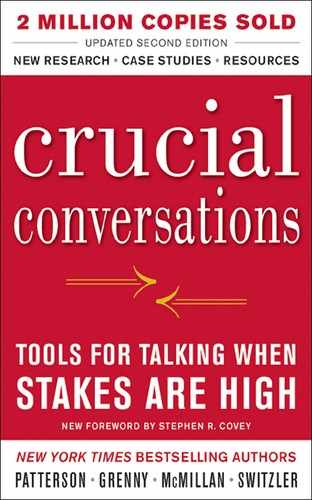FAILED TRUST
I DON’T KNOW WHAT to do. I’m not sure I can trust this person. He missed an important deadline. Now I wonder if I should trust him again.”
The Danger Point
People often assume that trust is something you have or don’t have. Either you trust someone or you don’t. That puts too much pressure on trust. “What do you mean I can’t stay out past midnight? Don’t you trust me?” your teenage son inquires.
Trust doesn’t have to be universally offered. In truth, it’s usually offered in degrees and is very topic specific. It also comes in two flavors—motive and ability. For example, you can trust me to administer CPR if needed; I’m motivated. But you can’t trust me to do a good job; I know nothing about it.
The Solution
Deal with trust around the issue, not around the person.
When it comes to regaining trust in others, don’t set the bar too high. Just try to trust them in the moment, not across all issues. You don’t have to trust them in everything. To Make It Safe for yourself in the moment, bring up your concerns. Tentatively STATE what you see happening. “I get the sense that you’re only sharing the good side of your plan. I need to hear the possible risks before I’m comfortable. Is that okay?” If they play games, call them on it.
Also, don’t use your mistrust as a club to punish people. If they’ve earned your mistrust in one area, don’t let it bleed over into your overall perception of their character. If you tell yourself a Villain Story that exaggerates others’ untrustworthiness, you’ll act in ways that help them justify themselves in being even less worthy of your trust. You’ll start up a self-defeating cycle and get more of what you don’t want.
